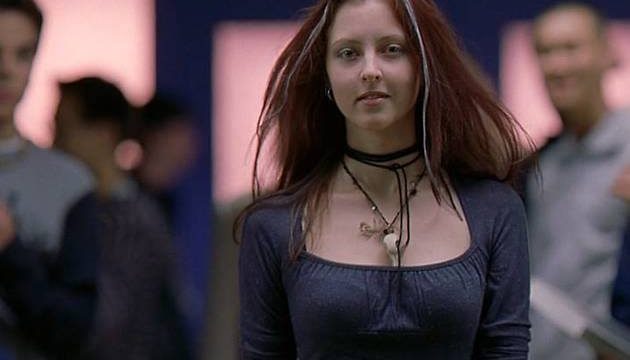I’ve been a fan of the horror genre since I can remember. As a child, I would “borrow” my mother’s books and read them under the covers with a flashlight, then have nightmares for days. I would also watch horror films when left unsupervised, my eyes widened in dread fascination as monsters rampaged and (mostly) women were menaced, usually to be rescued by the male hero. I learned from my film choices that, with rare exception, women in horror film were the “bodies that splatter,”* and from watching slashers, that the Final Girl** would overcome the monster thanks to her status as the one virginal female among her now-slaughtered peers.
Imagine my delight, then, to see a growing number of horror films centering the women protagonists as strong without having to wait for a man to rescue them, without having to maintain their virginity to survive (thank you, Scream, for deliberately upending that particularly onerous trope).
Even more delightful to me were the films Ginger Snaps (2000) and Teeth (2007), which each deal with a young girl whose sexuality emerges with ferocious power. In Ginger Snaps, it’s Ginger (Katharine Isabelle), whose first period unfortunately draws the attention of a werewolf that bites and transforms her. In Teeth, Dawn (Jess Weixler), a girl who wears a purity ring and believes in abstinence, discovers that she has literal vagina dentata when a local boy won’t take no for an answer and tries to rape her.
Both young women rise from the trauma and wind up wielding sexual power in similar ways, whether it’s a strange new confidence as her body changes (Ginger), or a merciless defense mechanism she can’t control at first because she doesn’t understand what is happening (Dawn). Both films are also satirical, with moments of deliberate comic relief that don’t undercut the horror to come (Ginger Snap’s poster reads “They don’t call it the curse for nothing,” while Teeth’s says “Every rose has its thorn”). Each film balances the comedy and horror expertly.
So why violence and gore and comedy to symbolize puberty and awakening sexuality? There are plenty of theories you can find online that are more sophisticated than what I’m about to write, but really, sexual awakenings can be painful, gross, and funny (many women my age may recall the shame as well—gotta hide that period and soak it all up without letting anyone know you’re bleeding away “down there”). Also: Why not? Women’s bodies in horror are frequently the site of violence, the object that is desired and then dismembered, punished for her desires in ways men often are not. Women are frequently seen as “weaker” or “softer” in some cultures and depicted that way in various media. In these two films, the women are anything but weak and soft, albeit afraid of what is happening to them because of the changes in their bodies. Their “monstrosity,” though, results in different ends for them.
In Teeth, after more trauma, Dawn learns she can control her new power; when she desires to have sex, her teeth are dormant. Her realization that she can control her vaginal anomaly leads to her wielding that power to defeat men who would abuse her. One of those is her step-brother, Brad (John Hensley), who has been coming on to her throughout the film and who is responsible for her mother’s death. He also sexually abused Dawn when she was a child, which he stupidly mentions when she decides to seduce him and enact her revenge. Dawn deploys her teeth, and as an added punishment, she feeds Brad’s severed member to his dog. When she hitches a ride out of town and the man who picks her up gives her a lascivious look, expecting sex in return for his “kindness,” Dawn smiles wickedly. She knows what she can do and she is no longer afraid.
In Ginger Snaps, Ginger’s lycanthropy/puberty is wild; she doesn’t have time to learn to control it and maybe—just maybe—she doesn’t want to. She enjoys the different way she is being seen by everyone (including boys). She enjoys the power she has and doesn’t see a need to moderate it. As the pun in the film’s title says, she snaps. Although her sister, Brigitte (Emily Perkins), and mother, Pamela (Mimi Rogers), want to protect and possibly cure her, because Ginger’s been othered as The Monster, she doesn’t get the luxury of survival (at least, not until the second sequel). For as long as her powers last, though, she goes full force with them.
Ginger Snaps and Teeth take separate paths in their horror-comedy trappings to give the audience heroines who bite back at the patriarchy, and to give women horror fans not only someone to cheer on, but a new language to use to talk about their changing bodies and desires. (Ginger Snaps also has strongly female familial bonds to explore, but that’s outside the scope of my article). Each can be enjoyed on several levels. Give them a try if you haven’t already.
Notes
*Title from a chapter of Judith Halberstam’s Skin Show, itself a play on Judith Butler’s work, Bodies That Matter
** Term coined by Carol J. Clover in her work, Men, Women and Chainsaws

